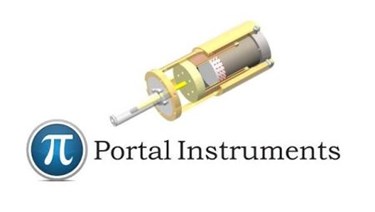MIT Team's Portal Instruments Developing Needle-Free Drug Delivery System

Portal Instruments has closed a $25 million series B financing deal with investments from venture capital firm 5AM Ventures and previous investors, including Sanofi Sunrise. With the funding, Portal Instruments will begin commercializing its digitally-controlled, needle-free drug delivery system, which will allow patients to self-administer biologics without injections.
Portal Instruments was founded in 2012 by Ian Hunter, a professor of mechanical engineering and head of the Bio Instrumentation Laboratory at the Massachusetts Institute of Technology (MIT). Together with his team, Hunter has filed over 50 different patents that form the foundation of the transformative technology.
Biologic drugs have revolutionized the clinical approach to chronic diseases like rheumatoid arthritis, diabetes, and multiple sclerosis, and bcc Research expects the global market for the drugs to reach nearly $400 billion by 2019. Because the molecules in biologic drugs are much larger than chemical-based pharmaceuticals, the only viable delivery system, thus far, has been subcutaneous injections. For chronic illnesses that require frequent doses, drug adherence can be painful and inconvenient for patients.
A study published by MIT scientists in the Journal of Pharmaceutical Sciences indicated that oral medications were preferred by both doctors and patients for their increased manageability and more even distribution throughout the body. But, transforming biologic drugs into pills has presented scientists with a significant challenge.
MIT’s solution was to design a capsule studded with tiny stainless steel needles that are hidden within a pH sensitive coating that dissolves in stomach acid. Once the needles — which measure 5 mm long —are exposed, they can deliver drugs into the stomach lining. Because this tissue does not have any nerve endings, patients do not feel any pain.
Portal Instruments completed an $11 million series A financing deal, headed by Sanofi Sunrise, in October of last year. At that time, Patrick Anquetil, CEO of Portal Instruments, remarked that the system was a “paradigm shift” for biologics, saying that the technology could handle delivery of all today’s newest biologic drugs, regardless of volume or viscosity.
“Drug adherence is a huge problem in chronic diseases and needle-related safety concerns are real,” said Anquetil in a press release announcing the series B financing. “The Portal device offers a transformed patient experience. The injection is needle-free, fast, with shorter injection duration and sensation for the patient. The device is easy to use and digital health features empower the patient to holistically manage their chronic condition and improve their adherence.”
Jim W. Young, a partner at 5 AM Ventures, said that Portal Instruments’ technology has the potential to “significantly improve” patients’ experience with biologic drugs, and that his firm looks forward to working with Portal Instruments’ extensive intellectual property portfolio and exceptional team of scientists.
Earlier this year, Novartis announced a partnership with Rani Therapeutics to develop a similar concept except, in their capsule design, the needles are made out of sugar.
